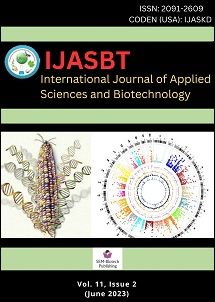Policy Implementation Basic Education Driving School Program (DSP) in Palu City
DOI:
https://doi.org/10.3126/ijasbt.v11i2.55846Keywords:
Policy Implementation, Driving School Program, Content, Policy, Policy ContextAbstract
This study aims to analyze the implementation of the basic education Driving School Program (DSP) policy in Palu City and obtain a new concept in the development of public policy science using qualitative methods, and descriptive analysis on 4 basic education units implementing the Driving School Program in Palu City. Parties who are interested in being influenced by implementers and target groups outside implementers and the community in the context of implementing DSP policies on the basic description of education in Palu City, socially and economically, have no influence. The benefits that will be generated are for increasing the competence of school principals and teachers, as well as accelerated reporting of Pancasila student profiles. The findings have not shown significant changes in multi-stakeholder participation that has not been optimal. Policy makers have implemented it well and involved stakeholders and considered the complexity. Driving school program implementers apply the DSP policy quite well. The support of local government resources in Palu City is still low. DSP policy implementation has not yet become a driving force for DSP policy content policies. Institutional and authority characteristics have not supported the implementation of DSP policies in Palu City. Compliance and responsiveness have not been optimal in responding to the policy context properly, constrained humbly to support the Palu City Government.
Int. J. Appl. Sci. Biotechnol. Vol 11(2): 116-122.
Downloads
Downloads
Published
How to Cite
Issue
Section
License
Copyright (c) 2023 International Journal of Applied Sciences and Biotechnology

This work is licensed under a Creative Commons Attribution-NonCommercial 4.0 International License.




